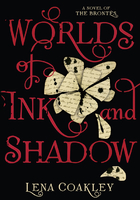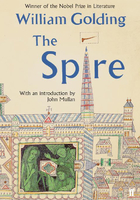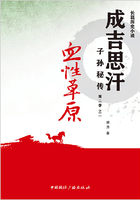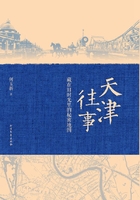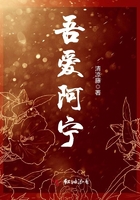When Maslova, wearied out by the long walk, reached the building, accompanied by two soldiers, Prince Dmitri Ivanovitch Nekhludoff, who had seduced her, was still lying on his high bedstead, with a feather bed on the top of the spring mattress, in a fine, clean, well-ironed linen night shirt, smoking a cigarette, and considering what he had to do to-day, and what had happened yesterday.
Recalling the evening he had spent with the Korchagins, a wealthy and aristocratic family, whose daughter every one expected he would marry, he sighed, and, throwing away the end of his cigarette, was going to take another out of the silver case; but, changing his mind, he resolutely raised his solid frame, and, putting down his smooth, white legs, stepped into his slippers, threw his silk dressing gown over his broad shoulders, and passed into his dressing-room, walking heavily and quickly. There he carefully cleaned his teeth, many of which were filled, with tooth powder, and rinsed his mouth with scented elixir. After that he washed his hands with perfumed soap, cleaned his long nails with particular care, then, from a tap fixed to his marble washstand, he let a spray of cold water run over his face and stout neck. Having finished this part of the business, he went into a third room, where a shower bath stood ready for him. Having refreshed his full, white, muscular body, and dried it with a rough bath sheet, he put on his fine undergarments and his boots, and sat down before the glass to brush his black beard and his curly hair, that had begun to get thin above the forehead. Everything he used, everything belonging to his toilet, his linen, his clothes, boots, necktie, pin, studs, was of the best quality, very quiet, simple, durable and costly.
Nekhludoff dressed leisurely, and went into the dining-room. A table, which looked very imposing with its four legs carved in the shape of lions' paws, and a huge side-board to match, stood in the oblong room, the floor of which had been polished by three men the day before. On the table, which was covered with a fine, starched cloth, stood a silver coffeepot full of aromatic coffee, a sugar basin, a jug of fresh cream, and a bread basket filled with fresh rolls, rusks, and biscuits; and beside the plate lay the last number of the _Revue des Deux Mondes_, a newspaper, and several letters.
Nekhludoff was just going to open his letters, when a stout, middle-aged woman in mourning, a lace cap covering the widening parting of her hair, glided into the room. This was Agraphena Petrovna, formerly lady's maid to Nekhludoff's mother. Her mistress had died quite recently in this very house, and she remained with the son as his housekeeper. Agraphena Petrovna had spent nearly ten years, at different times, abroad with Nekhludoff's mother, and had the appearance and manners of a lady. She had lived with the Nekhludoffs from the time she was a child, and had known Dmitri Ivanovitch at the time when he was still little Mitinka.
"Good-morning, Dmitri Ivanovitch."
"Good-morning, Agraphena Petrovna. What is it you want?" Nekhludoff asked.
"A letter from the princess; either from the mother or the daughter. The maid brought it some time ago, and is waiting in my room," answered Agraphena Petrovna, handing him the letter with a significant smile.
"All right! Directly!" said Nekhludoff, taking the letter and frowning as he noticed Agraphena Petrovna's smile.
That smile meant that the letter was from the younger Princess Korchagin, whom Agraphena Petrovna expected him to marry. This supposition of hers annoyed Nekhludoff.
"Then I'll tell her to wait?" and Agraphena Petrovna took a crumb brush which was not in its place, put it away, and sailed out of the room.
Nekhludoff opened the perfumed note, and began reading it.
The note was written on a sheet of thick grey paper, with rough edges; the writing looked English. It said:
Having assumed the task of acting as your memory, I take the liberty of reminding you that on this the 28th day of April you have to appear at the Law Courts, as juryman, and, in consequence, can on no account accompany us and Kolosoff to the picture gallery, as, with your habitual flightiness, you promised yesterday; _a moins que vous ne soyez dispose a payer la cour d'assise les 300 roubles d'amende que vous vous refusez pour votre cheval,_ for not appearing in time. I remembered it last night after you were gone, so do not forget.
Princess M. Korchagin.
On the other side was a postscript.
_Maman vous fait dire que votre convert vous attendra jusqu'a la nuit. Venez absolument a quelle heure que cela soit._
M. K.
Nekhludoff made a grimace. This note was a continuation of that skilful manoeuvring which the Princess Korchagin had already practised for two months in order to bind him closer and closer with invisible threads. And yet, beside the usual hesitation of men past their youth to marry unless they are very much in love, Nekhludoff had very good reasons why, even if he did make up his mind to it, he could not propose at once. It was not that ten years previously he had betrayed and forsaken Maslova; he had quite forgotten that, and he would not have considered it a reason for not marrying. No! The reason was that he had a liaison with a married woman, and, though he considered it broken off, she did not.
Nekhludoff was rather shy with women, and his very shyness awakened in this married woman, the unprincipled wife of the marechal de noblesse of a district where Nekhludoff was present at an election, the desire of vanquishing him. This woman drew him into an intimacy which entangled him more and more, while it daily became more distasteful to him. Having succumbed to the temptation, Nekhludoff felt guilty, and had not the courage to break the tie without her consent. And this was the reason he did not feel at liberty to propose to Korchagin even if he had wished to do so. Among the letters on the table was one from this woman's husband. Seeing his writing and the postmark, Nekhludoff flushed, and felt his energies awakening, as they always did when he was facing any kind of danger.
But his excitement passed at once. The marechal do noblesse, of the district in which his largest estate lay, wrote only to let Nekhludoff know that there was to be a special meeting towards the end of May, and that Nekhludoff was to be sure and come to "_donner un coup d'epaule_," at the important debates concerning the schools and the roads, as a strong opposition by the reactionary party was expected.
The marechal was a liberal, and was quite engrossed in this fight, not even noticing the misfortune that had befallen him.
Nekhludoff remembered the dreadful moments he had lived through; once when he thought that the husband had found him out and was going to challenge him, and he was making up his mind to fire into the air; also the terrible scene he had with her when she ran out into the park, and in her excitement tried to drown herself in the pond.
"Well, I cannot go now, and can do nothing until I get a reply from her," thought Nekhludoff. A week ago he had written her a decisive letter, in which he acknowledged his guilt, and his readiness to atone for it; but at the same time he pronounced their relations to be at an end, for her own good, as he expressed it. To this letter he had as yet received no answer. This might prove a good sign, for if she did not agree to break off their relations, she would have written at once, or even come herself, as she had done before. Nekhludoff had heard that there was some officer who was paying her marked attention, and this tormented him by awakening jealousy, and at the same time encouraged him with the hope of escape from the deception that was oppressing him.
The other letter was from his steward. The steward wrote to tell him that a visit to his estates was necessary in order to enter into possession, and also to decide about the further management of his lands; whether it was to continue in the same way as when his mother was alive, or whether, as he had represented to the late lamented princess, and now advised the young prince, they had not better increase their stock and farm all the land now rented by the peasants themselves. The steward wrote that this would be a far more profitable way of managing the property; at the same time, he apologised for not having forwarded the 3,000 roubles income due on the 1st. This money would he sent on by the next mail. The reason for the delay was that he could not get the money out of the peasants, who had grown so untrustworthy that he had to appeal to the authorities. This letter was partly disagreeable, and partly pleasant. It was pleasant to feel that he had power over so large a property, and yet disagreeable, because Nekhludoff had been an enthusiastic admirer of Henry George and Herbert Spencer. Being himself heir to a large property, he was especially struck by the position taken up by Spencer in Social Statics, that justice forbids private landholding, and with the straightforward resoluteness of his age, had not merely spoken to prove that land could not be looked upon as private property, and written essays on that subject at the university, but had acted up to his convictions, and, considering it wrong to hold landed property, had given the small piece of land he had inherited from his father to the peasants. Inheriting his mother's large estates, and thus becoming a landed proprietor, he had to choose one of two things: either to give up his property, as he had given up his father's land ten years before, or silently to confess that all his former ideas were mistaken and false.
He could not choose the former because he had no means but the landed estates (he did not care to serve); moreover, he had formed luxurious habits which he could not easily give up. Besides, he had no longer the same inducements; his strong convictions, the resoluteness of youth, and the ambitious desire to do something unusual were gone. As to the second course, that of denying those clear and unanswerable proofs of the injustice of landholding, which he had drawn from Spencer's Social Statics, and the brilliant corroboration of which he had at a later period found in the works of Henry George, such a course was impossible to him.

